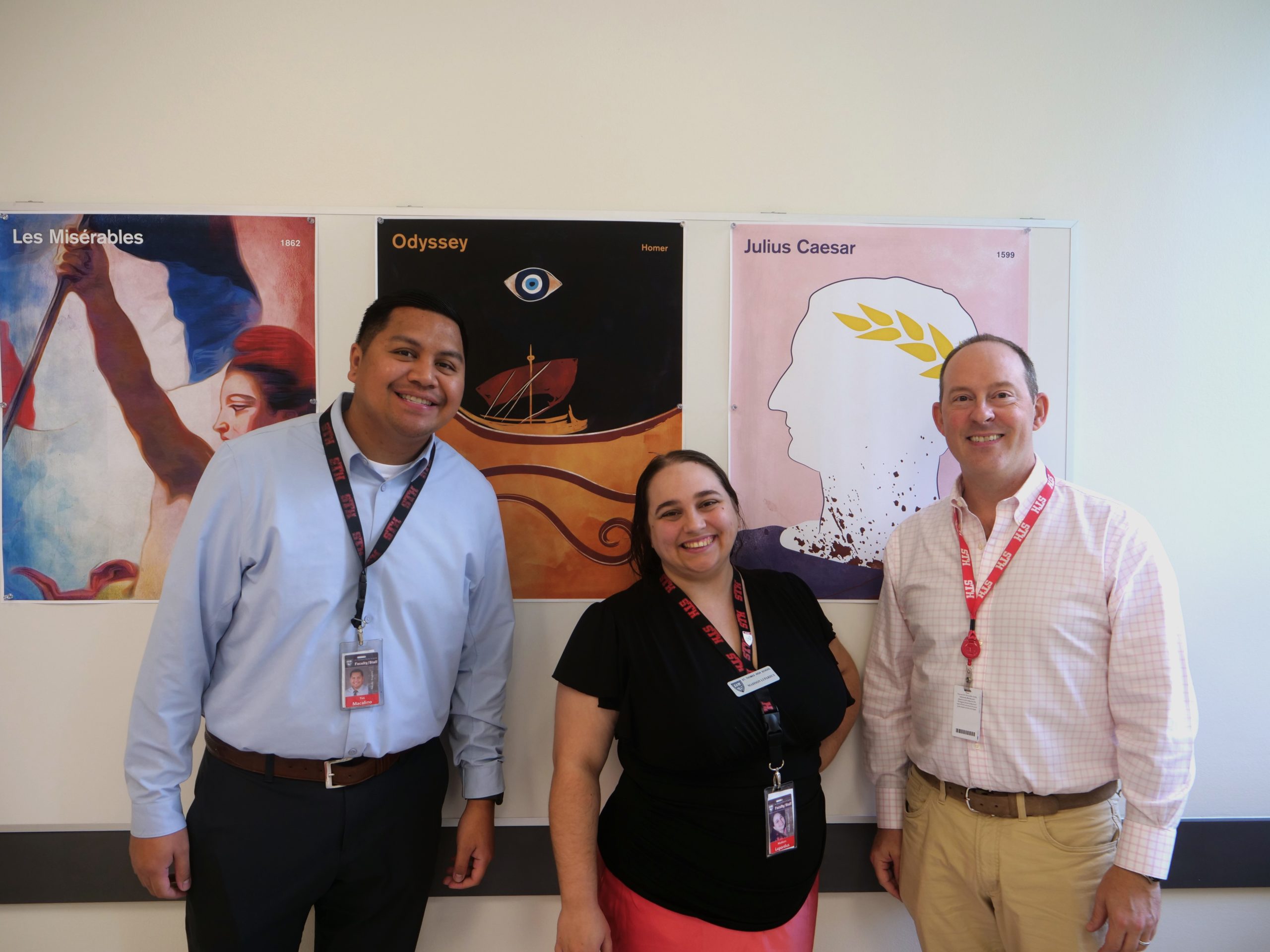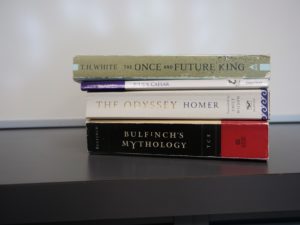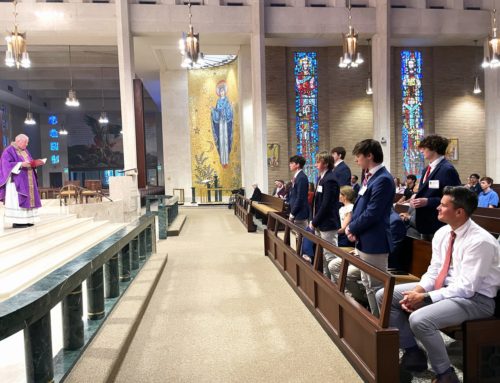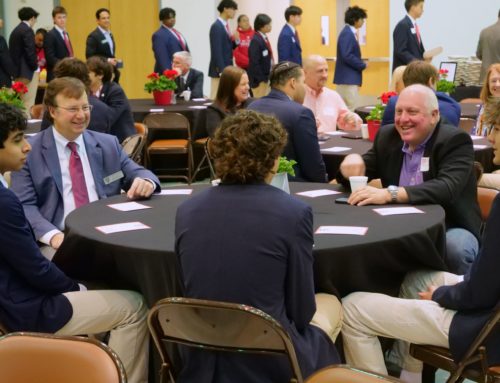Madison Lupardus, Tim Macalino, and Robert Perkins make up the English I faculty team at St. Thomas. Lupardus holds a B.A. in Classical and Ancient Studies, Macalino has spent years in curriculum development and high school education, and Perkins is a former lawyer turned teacher.
Equipped with various skills and different life experiences, the three educators are united in one goal, reflected in the school’s vision statement: to help students become effective communicators and critical thinkers.
“We’re trying to get them to engage in critical thought,” Perkins said. “English I isn’t necessarily about literature or substantive knowledge. This class is about the process of finding an answer and effectively communicating it.”
The English I curriculum highlights the importance of discussions, which informally occur in every class and are also specifically structured into the coursework with graded Socratic seminars each semester.
“Some kids may have brilliant insights, but there can be a disconnect in their ability to communicate it in writing,” Perkins said. “So what we dwell on a lot is that, you may have a wonderful answer, but how would you turn that into a thesis statement? Where is the textual evidence? Discussions get them in that modality.”
Over the course of the semester, the students gain more confidence in their textual analysis skills and essay writing, due to the conversations that occur in these discussions.
“By the time we get to the end of the year, they’re able to pull in-text examples that they never would have thought of before,” Lupardus said. “They’re able to compare and contrast between the texts. When they get to sophomore year, that process is almost automatic.”
The syllabus structure supports this growth, in the literature the students read and the order in which they do. Freshmen begin the year studying Greek mythology, then transition to The Odyssey by Homer. They then read Julius Caesar by William Shakespeare and end the year with The Once and Future King by T.H. White.
“The works that we teach are the building blocks of Western storytelling, Greek mythology and The Odyssey in particular,” Lupardus said. “It’s the foundation of everything.”
For these teachers, discussion and the sharing of ideas is not limited to their students. The three English I instructors lead by example, frequently collaborating in their downtime, discussing their classes and challenging each other to think outside the box.
“We bring a range of different experiences to work,” Macalino said. “We play on each other’s strengths. We listen. We respect each other and are constantly revising and editing, talking about what went well in class and what didn’t. We always keep the conversation going.”
Their ability to collaborate in the workplace reflects the real-life application of the values that they teach.
“We are making sure that our students are able to effectively communicate with other people,” Lupardus said. “We are teaching them to be able to find evidence, to prove what they’re trying to say, so that they’re not going to let other people talk for them. We’re preparing them to be successful, not just in English class, but in everything.”
Article by Sarah Jane Lasley










Leave A Comment